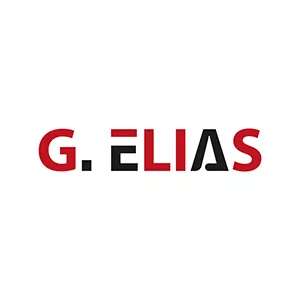- within Consumer Protection topic(s)
- within Consumer Protection, Insolvency/Bankruptcy/Re-Structuring and Finance and Banking topic(s)
- in European Union
- with readers working within the Law Firm industries
Introduction
On July 30, 2024, the Nigerian Communications Commission (the "Commission") released a Consumer Code of Practice Regulations, 2024 (the "Regulations"). This is pursuant to the powers granted to the Commission under Section 70 of the Nigerian Communications Commission Act (the "NCC Act") to make and publish regulations for written authorisations, permits, assignment and licenses granted or issued under the NCC Act, and Section 106 of the NCC Act which provides for the preparation of a Consumer Code.
The Regulations establish the procedures that a licensee must follow when developing an approved consumer code of practice, including the necessary contents and features of the code of practice. 1 Additionally, the General Consumer Code of Practice, as provided in the schedule of the Regulations (the "General Code"), sets forth the minimum standards that a licensee must adhere to when delivering services.
The Regulations also revoked the Consumer Code of Practice Regulations, 2007 (the "2007 Regulations") but provide that the Regulations shall not affect anything done or purported to be done under the revoked regulations2.
The highlights of the new Regulations are set out below.
Highlights
1. Application: The Regulations streamline the application of the NCC Act to licensees of the Commission3. A licensee is defined as a person who either holds an individual licence or undertakes activities which are subject to a class licence or authorisation granted under the NCC Act4. This is a departure from the 2007 Regulations which applied to licensees and any other provider of communication services in Nigeria.
2. Individual Consumer Code of Practice: licensees are required to prepare and submit to the Commission an individual consumer code of practice ("Individual Code") which must include the terms and conditions of the General Code or terms that are not less favourable to consumers5 than those in the General Code.6
3. Approval by the Commission: Under the Regulations, the Commission is required to approve the proposed Individual Code within 30 days of submission. If an extension is needed, the Commission will notify the licensee, and the General Code will govern the licensee's practices until approval is granted.7
4. Publication upon Approval by the Commission: The Regulations mandate that the licensee publish the approved Individual Code on its website, in one national newspaper, and on any social media platform of its choice.8 This is unlike the 2007 Regulations which required publication in two national newspapers or as otherwise directed by the Commission.
5. Service Contracts: A licensee is to make available on its website or on request a copy of the contract or agreement for the provision of its services, and the contracts are to be written in clear language9. Furthermore, consumers are to be provided with a complete description of the service in clear language before entering into a contract for service with information on any service dependencies and upgrade or migration terms as there may be. The licensee is to provide information on the quality of the service levels offered, compensation, refund, or other arrangements where the contracted service levels are not met alongside the procedure for resolving disputes in respect of the contract10.
6. Obligation to provide Information to Consumers: A licensee is required to provide complete, accurate and up-to-date information to consumers regarding its services. As against the 2007 Regulations that stated that consumer requests should be responded to in a timely manner, consumer requests are now to be responded to within 96 hours with the information provided for free.11
7. Subscription and Pricing: The licensee is to provide the consumer with clear instructions on the medium and procedure for subscribing to a service12. Prior to entering into a contract for service, the consumer is to be informed of the following: (a) the applicable rates or charges; (b) what the charges include; (c) each part or element of an applicable charge, and method of calculation; (d) the frequency of the charge or other circumstances that give rise to the charge; and (e) whether the charges or element are subject to change, the circumstance of change and how the consumer will be informed of such changes13.
8. Advertisement: A licensee is to comply with advertising standards established by the Advertising Practitioners Council of Nigeria14 and other applicable laws15. A licensee is required to obtain the approval of the Commission for advertisement for goods and services 30 days prior to the date of the planned publication of the advertisement16.
9. Consumer Obligations: A consumer is to be bound by a licensee's terms of service after accepting the service terms17. A consumer is not allowed to re-sell any service provided by a licensee except as permitted by the service agreement of the licensee18.
10. Protection of Consumer Information and Data: A licensee is to ensure the protection of individual consumer information in accordance with the data protection law and any other data protection principles issued by the Commission19. A licensee that collects information from individual consumers is to adopt and implement a "Protection of Consumer Information Policy" to provide for the proper collection, use, and protection of information collected from consumers.20 A licensee is also required to provide the consumer with the terms and conditions under which consumer's data is to be processed, inform consumer of the data being processed by it, and the purpose and duration for which the data is being processed.21
11. Complaints Handling: A licensee is to provide customer care centres and facilities and easily understandable information about its complaint processes across various media and formats. This information should be available in both hardcopy and digital formats, and accessible through the licensee's website or social media platforms22. The complaint handling process should be free of charge provided that a licensee may impose a reasonable charge for complaint handling where investigation of the complaint requires retrieval for more than two years23.
12. Persons with Special Needs: Licensees shall provide a consumer with reasonable assistance where consumers specifically request assistance. A licensee is to make adequate provision to ensure that persons with physical disabilities, elderly or other special needs can access their complaint handling process24. The 2007 Regulations did not include the elderly as persons who may request assistant in lodging complaints.
13. Complaints on Non-Compliance: Complaints by consumers are to be first lodged and dealt with by the appropriate licensee in accordance with the General Code25 while industry complaints, which are complaints made by one licensee against another for an alleged breach of a consumer code, are to be lodged directly with the Commission26.
14. Dispute Resolution: Parties are to be responsible for their costs of expenses associated with resolving the dispute.27 This is a new provision in the Regulations.
Conclusion
The Regulations represent a significant advancement in consumer protection within the Nigerian telecommunications industry. By introducing clearer standards and responsibilities for Licensees, the Regulations aim to enhance transparency, service quality, and consumer rights. These updates are expected to foster a more accountable and consumer-friendly environment within the Nigeria's communications sector. To compliment this significant step, it is imperative for all stakeholders to engage in consumer awareness initiatives to ensure that the consumer gets the full benefits intended in the Regulations.
Footnotes
1. Reg. 1, the Regulations.
2. Reg. 11, the Regulations
3. Reg. 2(2), the Regulations.
4. Reg. 12, the Regulations.
5. This is a reference to any person who subscribes to or uses a communication service.
6. Reg. 4, the Regulations.
7. Reg. 5, the Regulations.
8. Reg. 6, the Regulations.
9. Para. 7, the General Code.
10. Para. 8, the General Code.
11. Para. 6, the General Code.
12. Para. 9, the General Code.
13. Para. 10, the General Code.
14. This is now the Advertising Regulatory Council of Nigeria (ARCON) by virtue of ARCON Act 2022.
15. Para.18, the General Code.
16. Para. 21, the General Code.
17. Para. 37, the General Code.
18. Para. 40, the General Code.
19. Para. 43, the General Code.
20. Para. 44, the General Code.
21. Para. 45, the General Code.
22. Para. 51, the General Code.
23. Para. 55, the General Code.
24. Para. 52, the General Code.
25. Para. 67, the General Code
26. Para. 68, the General Code.
27. Para. 71, the General Code.
The content of this article is intended to provide a general guide to the subject matter. Specialist advice should be sought about your specific circumstances.




